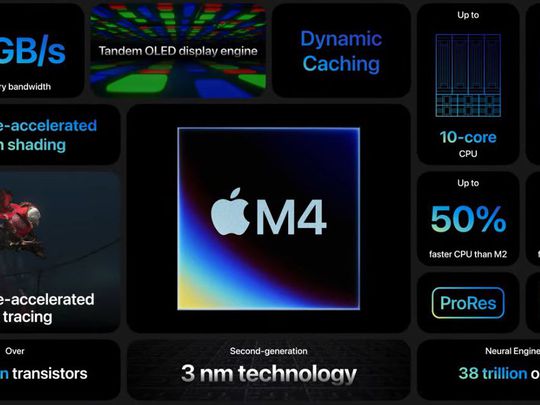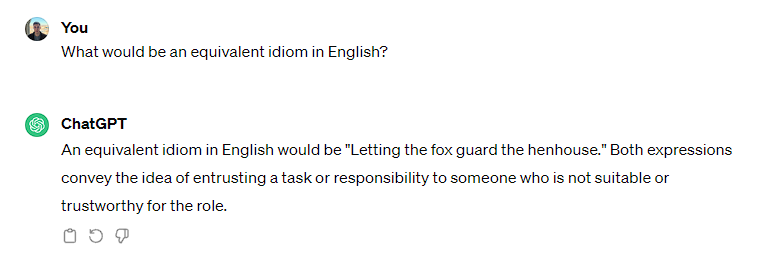
ChatGPT Vs. Google Translate: Which Provides Superior Translation Accuracy?

ChatGPT Vs. Google Translate: Which Provides Superior Translation Accuracy?
Key Takeaways
- ChatGPT excels at understanding idioms, dialects, and slang better than Google Translate, with an in-depth knowledge of language nuances.
- Google Translate is more precise and makes fewer errors overall.
- While Google Translate is currently superior, ChatGPT shows promising results and could see major improvements in the near future.
ChatGPT is a formidable AI tool that “speaks” just about every language, so it’s only natural that it can translate between these languages, too. On the flip side, Google Translate has been refined over the years and is incredibly precise. This begs the question: Can ChatGPT beat Google Translate at its own game?
What Sets Google Translate and ChatGPT Apart in Their Approaches to Translation?
Google Translate is a purpose-built tool for language translation. It’s a type of Neural Machine Translator (NMT), and its main goal is to predict sequences of words in a sentence with the help of an artificial neural network. One of the main selling points of machine translation is that they take context into account when translating.
On the other hand, ChatGPT is a type of Generative Pre-trained Transformer (GPT). It processed swaths of data to learn how human languages work naturally with minimal input from its creators. Similar to NMTs, GPTs also have the goal of predicting a word sequence based on the provided context. Thanks to training, ChatGPT has a broad understanding of grammar and the meaning of words. ChatGPT was never built with language translation in mind like Google Translate; it’s simply a byproduct of processing datasets in different languages.
In theory, Google Translate should win this head-to-head comparison because it’s trained for translation-specific tasks. So, let’s see how they perform when given something to work with.
ChatGPT Struggles With Sentence Structure
While ChatGPT understands grammar and syntax (word order) to the extent that it can fix our own errors, it falls short when it comes to translating and then adjusting the translated text to prevent awkward sentence constructions—even in English. To give an example, here’s a part of the synopsis of a German book called Wovon Wir Träumen.
Close
As you can see, ChatGPT translated the sentence mostly word-by-word while keeping the original sentence structure from German, resulting in an unnatural-sounding translation. The same is true if we try to translate from English to Bosnian. In this instance, I gave them the task of translating “guitar effects pedal” from English into Bosnian. Google Translate perfectly translated and adapted the phrase to sound natural, whereas ChatGPT incorrectly translated it into “effects of pedals for a guitar,” which is nonsensical.
Close
Granted, this didn’t happen with every single phrase I tried. ChatGPT managed to translate several phrases correctly—at the level of Google Translate—before I found an example that didn’t work well. It’s also worth noting that both tools have added “za” (meaning “for”) to the phrase so that it better aligns with the language’s grammatical rules; it’s just that ChatGPT didn’t know where to place it.
ChatGPT Doesn’t Account for Context
When I give ChatGPT and Google Translate a basic phrase to translate into English, both do pretty well. In this instance, I gave them the Bosnian phrase “držač za telefon” to translate into English, and both tools did an excellent job.
Close
However, ChatGPT often struggles with context, as it lacks an understanding of the nuances of a language. This leads to misconstrued translations due to a poor choice of words. In the following example, ChatGPT substituted the verb “pass” for “give” to translate “Please pass me the car keys” from Bosnian into English.
Close
It’s not a massive detail, but it’s indicative of just how good Google Translate has become at picking up and translating subtle nuances. At the same time, I have to commend ChatGPT for correctly translating “car keys” instead of spitting out a literal translation that would result in “the keys of the car.”
Granted, this didn’t happen with every single phrase I ran through the two tools. ChatGPT managed to translate several phrases correctly—just like Google Translate—before I found an example that didn’t work well.
ChatGPT Beats Google Translate in Figuring Out Idioms, Dialects, and Slang
Arguably, the most useful feature of ChatGPT in the context of language translation is that it can recognize idioms. Idioms are common expressions that have a figurative meaning—they mean something different from what’s being said literally. For instance, when you say “the last straw,” you’re not actually talking about straws; you’re referring to the fact that your patience has run out. Here’s an example using the popular German idiom “Den Bock zum Gärtner machen.”
Close
As you can see, both ChatGPT and Google Translate translated this gardener goat idiom literally. However, ChatGPT went a step further by explaining that it’s an idiom and even gave an excellent explanation. Surprisingly, Google Translate didn’t even acknowledge that it’s an idiom—somebody translating the phrase from German would be left utterly perplexed. And since ChatGPT is more than just a mere translator, I went a step further by asking it for an equivalent idiom in English:

This is a handy feature that we expect to see from a Large Language Model (LLM) like ChatGPT. It can hold somewhat convincing conversations, and while it’s not the best translator in the world, it’s definitely the most versatile.
Dialects are another area where ChatGPT excels, whereas Google Translate tends to fall short. This can be extended to all non-standard language variants and specialized languages like pidgins and creoles . To give you an example, I ran the phrase “While wetin dey happen?” from Nigerian Pidgin , meaning “What is going on?” without specifying what language it is. Here are the results:
Close
While Google Translate couldn’t recognize the pidgin language because it’s not officially supported, ChatGPT had no problem translating the phrase for us. The same is true for niche slang. While Google Translate knows many slang words, ChatGPT still beats it by a mile, probably because it has a larger database. In the following example, ChatGPT understands and correctly translates a common colloquial term in German for “go to bed,” whereas Google Translate thinks “Heia” is a proper noun and keeps its original form.
Close
Google Translate Wins… For Now
We’ve now seen several examples of how great ChatGPT is at understanding words. If you ask ChatGPT to explain the meaning of a word, chances are, it’s going to give you a correct answer. Google Translate is solely limited to translating from one language to another; you can’t ask it to explain the word, use it in a sentence, or provide a context.
Still, Google Translate is more precise and made fewer errors in my tests overall. I’ve tested both tools thoroughly and only presented some of the best examples, and I can confidently say that you should always try Google Translate first when translating. Only turn to ChatGPT if Google Translate gives you something that doesn’t sound right. Even better, you can run a piece of text through Google Translate and then ask ChatGPT if everything looks all right.
The takeaway here is that advanced generative AI tools like ChatGPT are incredibly versatile, and their translation capabilities are only going to improve. You can already use ChatGPT today to translate most things with a high degree of accuracy. Of course, Google can add similar capabilities to Google Translate, and with its large sets of curated data pools, Google Translate could hold the crown of the most versatile and accurate translation tool. Or maybe it’ll get fully integrated into Gemini , and we’ll have the best of both worlds.
Also read:
- [Updated] In 2024, How-To Manual for Crafting YouTube Playlists
- 2024 Approved Exclusive Insights Top 30 Hidden Windows 11 Tips Uncovered
- 2024 Approved Free Memery Masters Explore & Share Joy
- 2024 Approved From Novice to Expert The Complete PowerDirector Journey
- Access Your Favorite Songs: Enjoy BBC Heart's Online Radio Without Payment
- Examining Realities Intertwined What Is Mixed Reality, In 2024
- Expert Choice 8 Best Converters From Sub to Srt for 2024
- Flirty Screensaver Packs with Stunning Wallpaper Collections - Created by YL Software Experts
- In 2024, Top 3 Nintendo Switch Emulators Free to Download
- In 2024, Top-Notch Solutions for Disabled Apple ID From Apple iPhone 11 Making It Possible
- Latest Updates for HP LaserJet Pro M404n - Get Your Printer Software Now
- Ultimate List Best ASMR on Smartphones for 2024
- Universal Unlock Pattern for Realme Narzo 60 5G
- Title: ChatGPT Vs. Google Translate: Which Provides Superior Translation Accuracy?
- Author: Frank
- Created at : 2025-02-18 17:39:40
- Updated at : 2025-02-19 20:36:40
- Link: https://some-techniques.techidaily.com/chatgpt-vs-google-translate-which-provides-superior-translation-accuracy/
- License: This work is licensed under CC BY-NC-SA 4.0.